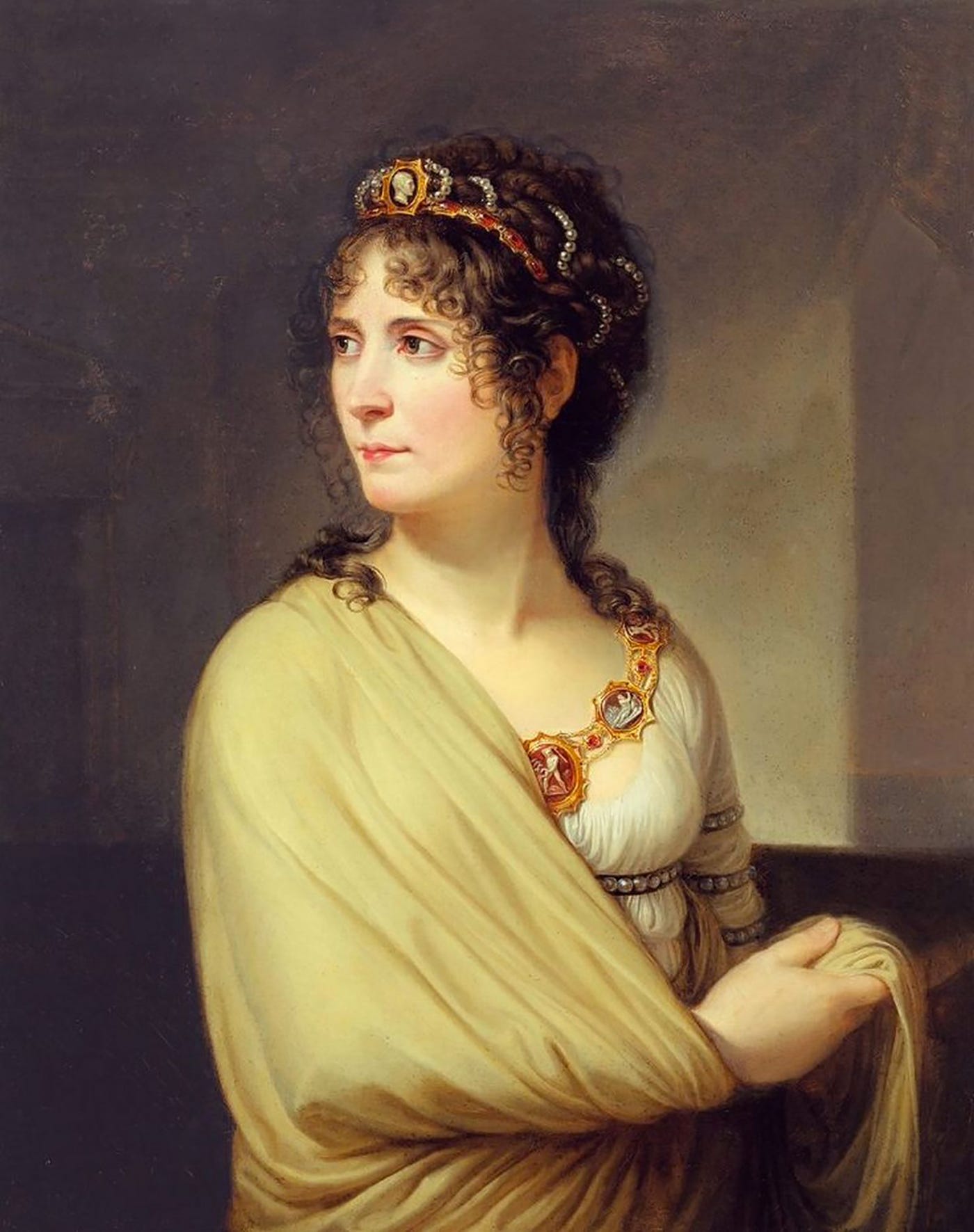Berlin, November 6th, 1806, 9 P.M.,
I received your letter in which you seem upset with the bad things I say of women1. It is true that I hate intriguing women more than anything else. I am accustomed to good, gentle, and compassionate women; those are the ones I like. If I have been spoilt, it is not my fault, but yours.
Besides, you will see that I was very kind to one who showed herself to be sensitive and good, Madame d’Hatzfeld2. When I showed her the letter from her husband, she told me while sobbing with deep sensitivity and naivety: “Ah! That is indeed his handwriting.”
When she read it, her voice went to my soul; it pained me. I said to her: “Well, Madame, throw this letter into the fire, I shall then no longer have the power to condemn your husband.”
She burned the letter and seemed to me very happy. Her husband has been very calm since then; two hours later, and he was lost. You see then that I love good, naive, and gentle women, but it is because those alone resemble you.
Farewell, my friend, I am well.
—Napoléon
Napoleon was personally irritated by the Prussian Campaign, which he viewed as the cause of women’s meddling. He had courted an alliance with Prussia for nearly a decade, now rendered worthless due to the pettiness of the government in Berlin. In the Fifteenth Bulletin, he states that the Queen of Prussia had accused her husband of cowardice, provoking the war. In a previous letter, Joséphine refers to the Sixteenth Bulletin (Potsdam, October 25th) that mentions the oath between Emperor Alexander and the King of Prussia in Federick the Great’s death chamber: “It is from this moment that the Queen quitted the care of her domestic concerns and the serious occupations of grooming in order to meddle with the affairs of State.” In the Eighteenth Bulletin (October 26th), it is mentioned that the Prussian people did not want war but that a handful of women and young officers alone made this “tapage” and that the Queen “formerly a timid and modest woman looking after her domestic concerns,” had “conducted the monarchy within a few days to the brink of the precipice." Napoleon saw in the Queen of Prussia the main cause of the war, and had no patience for her attempts to minimize the consequences. However, while Napoleons temper often erupted, it also quickly subsided. In the Twenty-Second Bulletin (November 26th) the story of the Princess d’Hatzfled is mentioned, and a year later when the Old Guard returned to Paris free performances were given of the “Triumph of Trajan” at the Opera where Trajan burns papers revealing a conspiracy with his own hands.
The prince of Hatzfeld, governor of Berlin, had informed the court of Prussia on the movements of the French troops.




